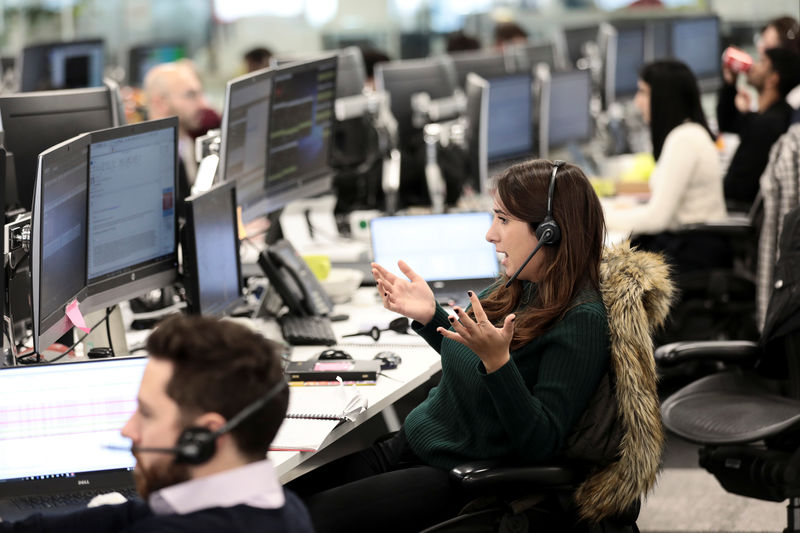By Muvija M and Shashwat Awasthi
(Reuters) - Sharp rises in oil company shares drove Britain's FTSE 100 higher on Monday, after an attack on a Saudi oil facility by Yemeni separatists pushed crude prices higher, while Asia-exposed banks gained following moves by China to keep business interest rates low.
By 0759 GMT, the FTSE 100 (FTSE) had jumped nearly 1%, its biggest one-day rise in more than 10 days, and the FTSE 250 midcap index (FTMC) was 0.6% higher, marking a solid start to the week after struggling for three consecutive weeks.
Shell (L:RDSa) and BP (L:BP) rose about 1% each, tracking a surge in crude prices following a drone attack by Yemen's Houthi group on an oilfield in eastern Saudi Arabia on Saturday, which caused a fire at a gas plant and added to Middle East tensions.
Miners (FTNMX1770) and Asia-exposed financial heavyweights, led by a near 2% rise in HSBC (L:HSBA) shares, also gained after China's central bank announced reforms to help lower borrowing costs for companies and support an economy bruised by the trade war with the United States.
Meanwhile, UK-centric Lloyds (L:LLOY) and Barclays (L:BARC) advanced after a report last week that Germany would be prepared to take on new debt to counter a possible recession.
Ocado (L:OCDO) added 2.6%, topping the blue-chip index, after JP Morgan nudged its price target on the stock higher and said the online grocery chain operates "a superior economic model" than its store-based rivals.
Peer Sainsbury's (L:SBRY) rose 2.3%. The company said on Saturday, following a media report, that it was not talking to internal candidates about CEO succession plans.
Smallcap outsourcer Mitie (L:MTO) added 3.3% after a deal to sell its catering and hospitality business to CH&CO as it pushes ahead with moves to simplify operations.
CYBG (L:CYBGC) jumped 5.3% to top gainers on the FTSE 250 index, with a trader citing a UBS upgrade on stock.
Investors will keep a close watch on Federal Reserve Chaimran Jerome Powell's speech later this week for his commentary on interest rates.
"Traders remain convinced the Fed will cut in September, owing to the downside risks stemming from the trade policy and slowing global growth," London Capital Group Analyst Jasper Lawler said.
The UK indexes, much like their global counterparts, spiralled to multi-month lows last week on fears of recession after the yields on 10-year U.S. and UK government bonds fell below two-year equivalents for the first time since the financial crisis.

Despite a recovery since then, the FTSE 100 index is still on course for its steepest monthly fall in four years.